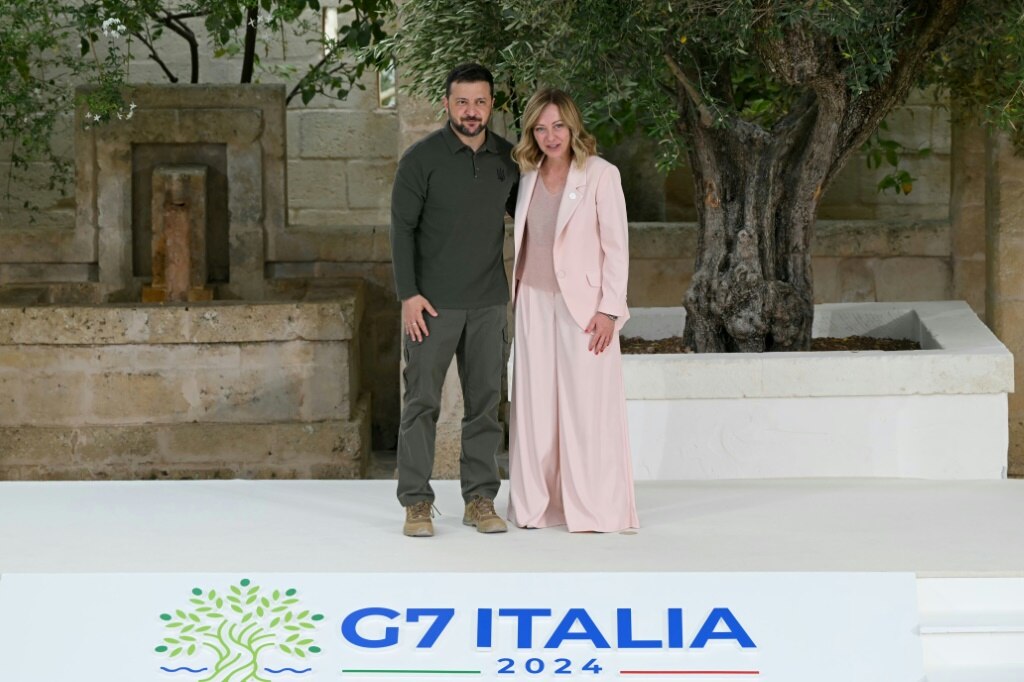Washington wrongly assumes China, Russia and Iran seek ‘stability’

Once stigmatised as a neofascist from the fringes of Europe’s hard right, Meloni has firmly entrenched herself at the centre of European politics. She has become a role model for figures such as Marine Le Pen in France, and the European Union seems to be moving in Meloni’s direction on issues such as immigration and climate change.
US President Joe Biden, by contrast, is struggling. While administration supporters denounced what they called a cropped and misleading video of a befuddled-looking President wandering across the lawn, the image aptly depicted the state of an American foreign policy that has largely lost its way.
The problem is not lack of activity. If frequent-flyer miles could be redeemed for Nobel Peace prizes, Team Biden would have a fistful of medals. But that isn’t where we are. In the Middle East, Europe and the Far East, the US and its friends are less secure than they were in January 2021. Great-power conflict is closer today than at any time in decades.

The heart of the problem is conceptual. Team Biden was slow to grasp the connections between the challenges it faces, and slower still to draw the appropriate conclusions. For too long it ignored the steadily growing elements of common strategy and purpose among major revisionist powers such as China, Russia and Iran, and lesser powers such as North Korea and Venezuela.
The merits of the American-led world system were so obvious to Team Biden that it assumed other countries mostly agreed with America about how the world should work. “Stability”, it believed, is an interest almost everybody shares. When a crisis erupts – in the shoals off The Philippines, in the Red Sea, on Israel’s northern border, on the ground in Ukraine – the Biden hands instinctively rushed to “stabilise the situation”, offering “off-ramps”, “de-escalating”, and generally trying to smooth things over.
Unfortunately, this approach is badly out of date. China, Russia and Iran don’t have a common set of positive goals or values, but they have a common interest in undermining the US-led world system. Rather than seeing crises as common problems demanding common action to restore stability, they see crises as opportunities to weaken American power.

In former times, China might have wanted America to succeed in its efforts to stabilise the Middle East and keep the Red Sea open. After all, China likes low oil prices and does not want shipping disrupted in sea lanes that matter for its trade. That is still true, but China’s interest in hastening the decline of US power trumps its interest in Middle East stability. Rather than helping Team Biden calm the Middle East, Beijing looks to exploit regional tensions to weaken Washington’s position.
Similarly, 15 years ago the US could count on our common strategic interest with Russia in avoiding a nuclear breakout in Iran and a nuclear build-up in North Korea. No more. The Kremlin no doubt still views the Iranian leaders with deep suspicion and the North Koreans with contempt, but empowering North Korea and Iran is a price Russia is willing to pay if the result is to make life harder for the US.
What unites the revisionists is their sense that America, overstretched and internally divided, is ready to be rolled. They believe the best way to degrade and ultimately break America’s power is to create more instability and crisis in more places so our resources and our will are overtaxed, and we fumble and stumble as the tide of history turns against us.

Conventional crisis management won’t solve this problem. American foreign policy must shift out of the managerial, reactive mode and become more proactive. The revisionist powers need to spend less time planning how to discomfit America and more time worrying about what the US has planned for them.
The Middle East offers one option to change the momentum. Iran, racing toward nuclear weapons, is overextended and the weakest of the major revisionist powers. Teaching Iran that supporting the Houthis, Hamas and Hezbollah is poor strategy would do more to stabilise the Middle East than 100 painfully negotiated Security Council resolutions about Gaza. It would also instil some healthy caution into the calculations of Moscow and Beijing.
There are other options, but time is running short. Unless the administration changes its approach, the image of Biden wandering aimlessly, doctored or not, will define his presidency.
THE WALL STREET JOURNAL





Giorgia Meloni was the winner of the recent Group of Seven meeting. Whether giving French President Emmanuel Macron the stink eye or stitching up a deal to increase Italy’s clout in the European Union, the Italian Prime Minister had a good summit.